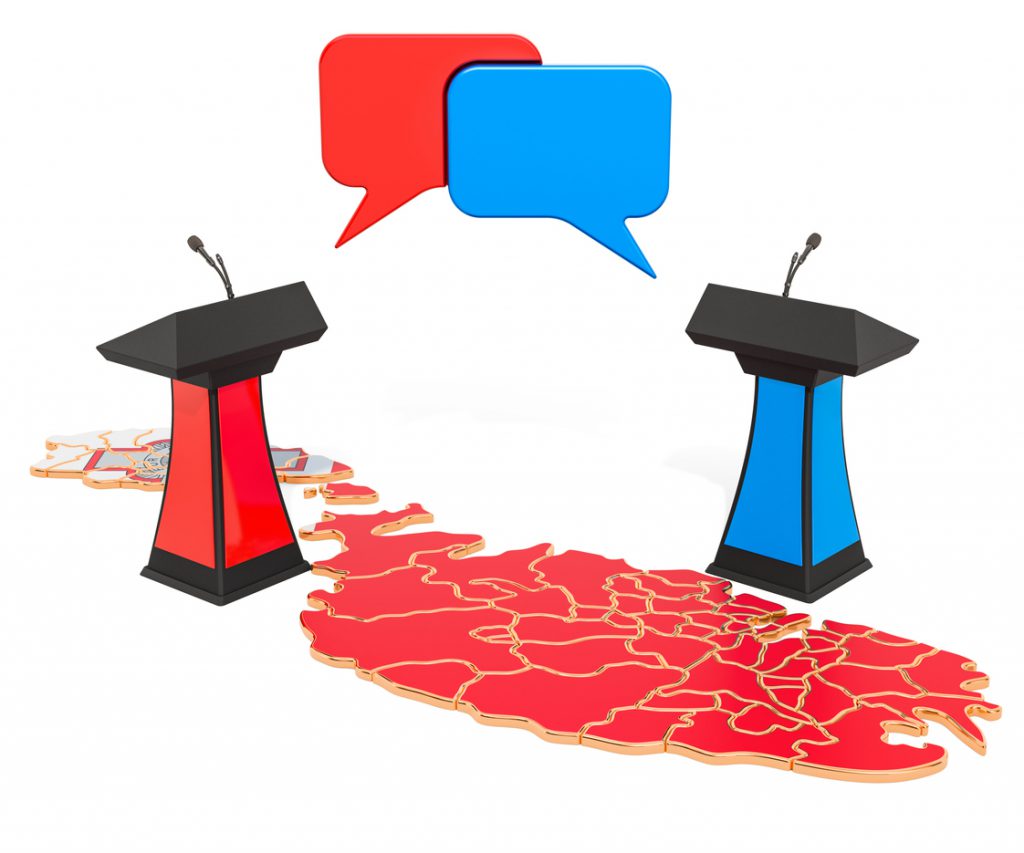Beware of the election frenzy

The general election frenzy is in full swing. Political parties are gearing up for the start of the campaign amid mounting speculation that the country could be going to the polls in a few weeks. Though by the time of writing of this editorial, the starting shot has not been fired, the wheels of the respective political party machines are in top gear already. Billboards have started mushrooming in strategic points, highly-charged political rallies are swelling by the day and party leaders have been addressing news conferences and touring the country. Meanwhile party candidates have already started jostling to position themselves as the district front runners in the race to win a parliamentary seat.
It is also an open secret that when an election is around, fiscal prudence goes into hiding to make way for fiscal profligacy which takes centre stage. The extravagance oozed during the election campaign makes you wonder whether the country’s administration has suddenly gone into complete oblivion of the State coffers, and the financial constraints which until some months before were a huge shackle.
2022 seems to be no exception. A few days ago, the Prime Minister pompously announced €70 million in grants to practically every citizen of the Maltese Islands. These range from cheques of €200 or €100 “to stimulate the economy” and “tax refunds” of up to €135. The timing of the measure immediately raised eyebrows. On his part the Finance Minister allayed concerns that such expense was uncalled for, saying Malta’s deficit in 2021 turned out to be less than expected. Such assurance, however, is to be taken with caution. Only last month the National Statistics Office said that government’s debt had reached €8 billion – which sum represents to total debt accumulated since 1964 – of which €1.1 billion were accumulated in just one year from 2020 onwards.
It is also interesting why this time around government opted to inject straight cash in the form of cheques to stimulate the economy, whereas it would have made more sense to issue vouchers. While the latter have a ripple economic effect, dishing out cheques might have a milder effect as the beneficiaries are not bound to spend them. As for the tax credits, it would be worthwhile to know if those who have defaulted on their bills, will still be eligible. What sense does it make to get a refund on a bill which was not paid in the first case?
In such circumstances it is hard to argue against anyone who feels that this is primarily a vote catching exercise by contriving a feel-good factor, or simply a ploy to deflect attention from other matters such as the controversy surrounding the €17,000-a-week contract which the Prime Minister had landed under his predecessor Joseph Muscat. It is no surprise the Opposition has labelled the €70 million outlay as tantamount to giving crumbs while a selected few have the entire cake.
The government’s argument that these cash handouts are meant to fight inflation can have a degree of legitimacy as this money will ease some of the burden faced by low-income earners. However, the country must look at long-term solutions. Throwing money at a problem may only work in the short term. What difference would there be from the Air Malta “fireplace? What about investing to train employees and roll out incentives to employers as part of a wider plan to improve the take-home pay? It makes little sense basing an economy on cheap labour while taking sporadic action through cash injections. Moreover, dishing out money on the eve of an election does not bode well, as it will only increase the likelihood of making the vulnerable sector of the electorate even more dependable on politicians. That is surely a worrying sign for any democracy.
